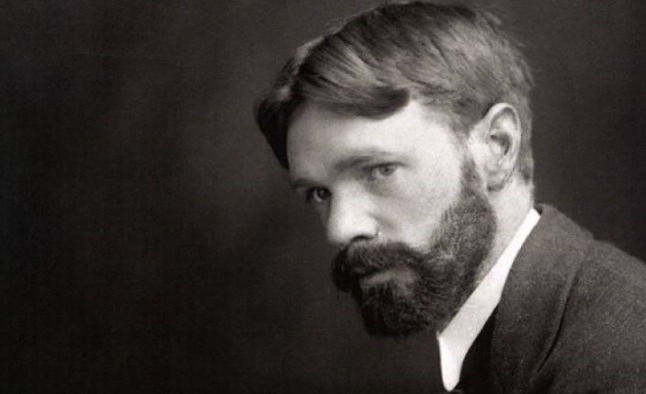"Sea and Sardinia" By D.H. Lawrence 0 Comments

David Herbert Lawrence was one of the writers of the early twentieth century who deeply loved Sardinia, leaving us a tourist guide from the past, a travel book where you can read customs, traditions and descriptions of places and characters expressed in a poetic, accurate and bewitching, but also ironic and irreverent way.
The work of the attentive chronicler is "Sea and Sardinia" published in December 1921. Many of his quotes on Sardinia are still suitable today. “This land resembles no other place.” …Who would not be proud and fascinated by it?
Lawrence was a much-discussed writer for the resonance aroused by many of his novels, considered "erotic" as they dealt explicitly and provocatively with love issues. Like his latest novel, the famous "Lady Chatterley's Lover", published in 1928, two years before his death and still today one of the greatest masterpieces of erotic literature.
His books, although controversial, sold well and allowed him to travel to visit Italy, India, Australia and Mexico. He explained his need to travel by writing it in the book’ ‘'Sea and Sardinia” incipit: “You feel the absolute need to move. And above all to move in a particular direction”.
It was 1921, a century ago, and David Herbert Lawrence and his wife Frieda decided to take a trip to Sardinia. They chose Sardinia because it was described as wild and indomitable, to the point that "neither Phoenicians, nor Romans, nor Greeks or Arabs ever conquered it".
It was a planned trip, a short tourist trip to enable him to write a diary, which would become the travel book "Sea and Sardinia".
Disembarking in Cagliari, in nine days they crossed the island by train from Mandas to Terranova -Olbia, passing through Sorgono and Nuoro. A long, uncomfortable and adventurous journey that would allow him to describe an original and very different portrait of Sardinia and Sardinians from the 19th century reports La Marmora and Valery wrote.
The internal connections were the only railway network and the ships were the only possible link with the world, a lack of structures for the early tourism pioneers that were enchanted by those beautiful territories.
The resulting image is Sardinia still before the Classical World. The most beautiful, most fascinating pages are those dedicated to the Bastion of Cagliari, and to Nuoro in search of Grazia Deledda ‘s birthplace, who he appreciated, having also written the introduction to the English translation of her book "the Mother". He describes the streets of Nuoro “…the only street. And it was a river of noisy life. A band was playing, rather terribly, round the corner at the end, and up and down the street jigged endless numbers of maskers in their Carnival costume, with girls and young women strolling arm-in-arm to participate. And how frisky they all were, how bubbly and unself-conscious!”.
The book tells of desolate, deserted and unspoiled landscapes, farmers who lived in symbiosis with nature as did shepherds with their flocks. It is the kingdom of chestnuts, oaks and corks. A wild, unusual landscape, where the hills seemed untouched and deserted. Bare and stony countryside, stones sprouting in the valleys, some lonely men on horseback. The beauty of the places is left intact, the testimony of an indomitable and wild people that no one has ever managed to conquer.
It is surprising that D.H. Lawrence did not dedicate a single word to his reader on the Nuragic civilization of Sardinia, which has many points in common with the Etruscan civilization that he later got to know and appreciate. He missed the ancient Sardinian culture because probably he misguided the ancient monuments for rock outcroppings. Archaeology in Sardinia began to be active with excavations and research only decades after his visit.
The two enthusiastic travelers, before arriving in Olbia-Terranova, passed through Orosei enjoying the beauty of that sea which filled their eyes and souls. From Olbia the steamer took them to other lands to discover and perhaps to write about.
“Sardinia is something else. Enchanting spaces and distances to travel, nothing finished, nothing definitive. It is like freedom itself”. (David Herbert Lawrence, from the book "Sea and Sardinia")
--
Written by Daniela Toti
Share your opinion with us!